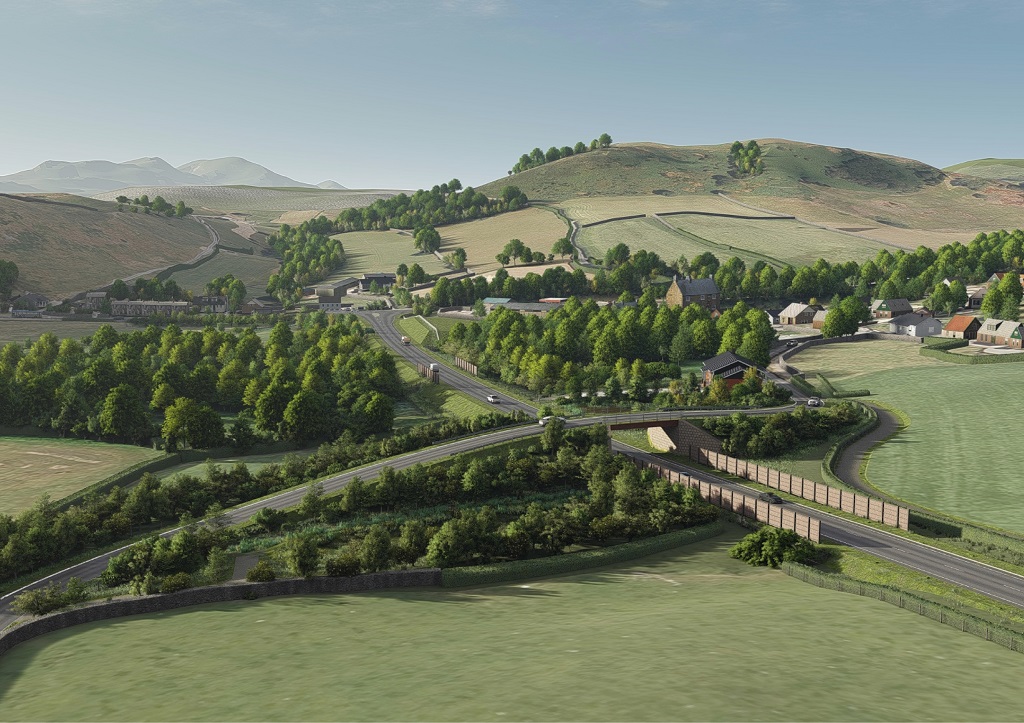Northern transport priorities announced
Regional leaders from across the north of England took part in the first Transport for the North project board meeting yesterday, with discussions on how to deliver an integrated 15-year transport strategy.
The meeting in Leeds was attended by transport secretary Patrick McLoughlin and was the first step in drawing up and delivering a programme of strategic investment into the North's infrastructure.
With a broad remit, Transport for the North will look at east-west rail links, roads, ports and airports as well as broadband, devolved powers, smart ticketing and how this inter-connectivity would work with and complement the UK's other regions and HS2.
To coincide with the meeting, transport leaders across the North West announced their priorities for the Transport for the North agenda.
Mayor of Liverpool Joe Anderson and Cllr Nick Forbes, leader of Newcastle City Council, issued a joint statement supporting coast-to-coast transport improvements which could cut journey times between the two cities by up to an hour.
Anderson said: "If we want to rebalance the economy, we also have to rebalance transport spending. Government has invested billions on Crossrail in London and continues to spend significantly more per capita in London than it does across the entire north.
"In Liverpool, our port is busier than ever and we are investing to grow it significantly over the next few years. We have to make sure we have the transport infrastructure in place to be able to carry freight and passengers across the north if we are to maximise the benefits. It's only with this approach that the whole of the UK economy will benefit."
Transport for Greater Manchester called for changes to the management of local railway stations to enable long-term investment and prevent them from "falling into sharp decline".
Railway stations across Greater Manchester are managed by train operating companies on a short term basis, or by Network Rail. TfGM said that the stations would be better managed and run locally, on longer leases.
To enable this, it has asked that the Government leaves this option open as part of the refranchising of Northern Rail and First TransPennine services which is due to begin in the next few months.
Cllr Andrew Fender, chairman of TfGM, said: "The majority of Greater Manchester's 97 rail stations are old, over 80% are more than 100 years old, and many of them have remained fundamentally unchanged in that time, with 52 of them currently classed as inaccessible.
"We believe that by handing control of stations to Greater Manchester we can address the issue of under-investment and place them at the heart of an integrated network, providing transport hubs where buses, trains and, in some places, trams all connect and make journeys easier and more comfortable.
"We have a golden opportunity here, one that has to be seized. There is a very real and significant risk that while every other part of our transport network will improve through devolution, our rail stations will remain largely stagnant, inaccessible and fit for the 19th Century."
Transport for the North, an alliance of the North's key authorities and agencies, was set up by the Government in October.
It is led by the city regions that made up One North: Greater Manchester, Liverpool, Leeds, Sheffield and Newcastle, together with Hull and the Humber, working in collaboration with the Department for Transport, Highways Agency, Network Rail, and HS2.
Transport for the North will jointly produce an interim report in March 2015.
Proposals that Transport for the North is considering include:
- More trains, more seats and quicker journey times on faster, more frequent interconnected rail services running on electrified lines. Currently, east-west journeys take almost twice as long as equivalent journeys in the south
- A high-speed east-west railway linking Liverpool, Manchester, Sheffield, Leeds, Hull and Newcastle
- Improved access to Manchester Airport
- Building in sustainable connections with other proposed schemes such as HS2, Atlantic Gateway, the East Coast Mainline and Northern Hub. Liverpool's planned superport will almost double in handling capacity by 2030, all of which will need to be distributed around the UK
- Providing additional capacity on the North's roads for both freight and personal travel through extended managed motorways, addressing gaps in the network, reliance on the M62 and improving links to ports
- A digital infrastructure enabling real-time information, greater network resilience and faster connections between key areas to personal and business users.
- Improved access to enable efficient freight movements by rail, road and water including ports, rail links and distribution centres
- Building HS2 early, extending phase one to Crewe and bringing forwards the delivery of HS2 between Leeds and Sheffield
- Improving east/west rail freight capability across the Pennines, linking major ports to north/south rail routes




Cllr Andrew Fender: "We have a golden opportunity here, one that has to be seized. There is a very real and significant risk that while every other part of our transport network will improve through devolution, our rail stations will remain largely stagnant, inaccessible and fit for the 19th Century." Why wasn’t this done 25 years ago when the rot was in full swing on the rail network. Now we’ve got rot upon rot and a Northern rail network that looks like it’s owned and operated by Hekurudha Shqiptare.
By Kiff
Sounds promising, let’s hope it all gets delivered
By James Thorp
@kiff – most of their rolling stock is newer than our Pacers!
By James Thorp
Ironic that he uses the golden age of railways (1800s) as a reference point to a supposedly worse era of rail. Chuck ‘im off at the next station an’ make ‘im tek Shank’s pony…
By Tilt